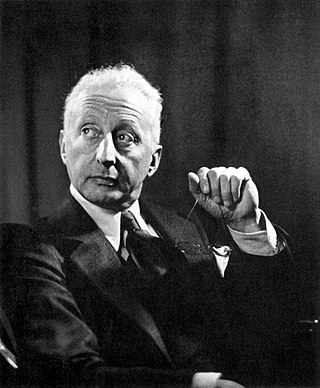
Jerome David Kern was an American composer of musical theatre and popular music. One of the most important American theatre composers of the early 20th century, he wrote more than 700 songs, used in over 100 stage works, including such classics as "Ol' Man River", "Can't Help Lovin' Dat Man", "A Fine Romance", "Smoke Gets in Your Eyes", "The Song Is You", "All the Things You Are", "The Way You Look Tonight" and "Long Ago ". He collaborated with many of the leading librettists and lyricists of his era, including George Grossmith Jr., Guy Bolton, P. G. Wodehouse, Otto Harbach, Oscar Hammerstein II, Dorothy Fields, Johnny Mercer, Ira Gershwin and Yip Harburg.

Judy Holliday was an American actress, comedian and singer.

Anne Marsh Caldwell, also known as Anne Caldwell O'Dea, was an American playwright and lyricist. She wrote both pop songs and Broadway shows, sometimes working with composer Jerome Kern.
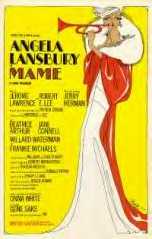
Mame is a musical with the book by Jerome Lawrence and Robert Edwin Lee and music and lyrics by Jerry Herman. Originally titled My Best Girl, it is based on the 1955 novel Auntie Mame by Patrick Dennis and the 1956 Broadway play by Lawrence and Lee. A period piece set in New York City and spanning the Great Depression and World War II, it focuses on eccentric bohemian Mame Dennis, whose famous motto is "Life is a banquet and most poor sons of bitches are starving to death." Her fabulous life with her wealthy friends is interrupted when the young son of her late brother arrives to live with her. They cope with the Depression in a series of adventures.

Swing Time is a 1936 American musical comedy film, the sixth of ten starring Fred Astaire and Ginger Rogers. Directed by George Stevens for RKO, it features Helen Broderick, Victor Moore, Betty Furness, Eric Blore and Georges Metaxa, with music by Jerome Kern and lyrics by Dorothy Fields. Set mainly in New York City, the film follows a gambler and dancer, "Lucky" (Astaire), who is trying to raise money to secure his marriage when he meets dance instructor Penny (Rogers) and begins dancing with her; the two soon fall in love and are forced to reconcile their feelings.

The Princess Theatre was a joint venture between the Shubert Brothers, producer Ray Comstock, theatrical agent Elisabeth Marbury and actor-director Holbrook Blinn. Built on a narrow slice of land located at 104–106 West 39th Street, just off Sixth Avenue in New York City, and seating just 299 people, it was one of the smallest Broadway theatres when it opened in early 1913. The architect was William A. Swasey, who designed the Winter Garden Theatre two years earlier.
Victor Baravalle (1885–1939) was an Italian-born composer, music director, and conductor, best known for his work on both the stage and film productions of the Jerome Kern and Oscar Hammerstein II musical Show Boat.
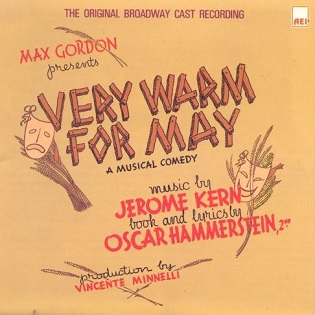
Very Warm for May is a musical composed by Jerome Kern, with a libretto by Oscar Hammerstein II. It was the team's final score for Broadway, following their hits Show Boat, Sweet Adeline, and Music in the Air. It marked a return to Broadway for Kern, who had spent several years in Hollywood writing music for movies, including Swing Time for Fred Astaire and Ginger Rogers.

Roberta is a 1935 American musical film released by RKO Radio Pictures and directed by William A. Seiter. It stars Irene Dunne, Fred Astaire, Ginger Rogers, and features Randolph Scott, Helen Westley, Victor Varconi and Claire Dodd. The film was an adaptation of the 1933 Broadway musical Roberta, which in turn was based on the novel Gowns by Roberta by Alice Duer Miller. It was a solid hit, showing a net profit of more than three-quarters of a million dollars.

The Girl from Utah is an Edwardian musical comedy in two acts with music by Paul Rubens, and Sidney Jones, a book by James T. Tanner, and lyrics by Adrian Ross, Percy Greenbank and Rubens. The story concerns an American girl who runs away to London to avoid becoming a wealthy Mormon's newest wife. The Mormon follows her to England, but she is rescued from a bigamous marriage by a handsome actor.
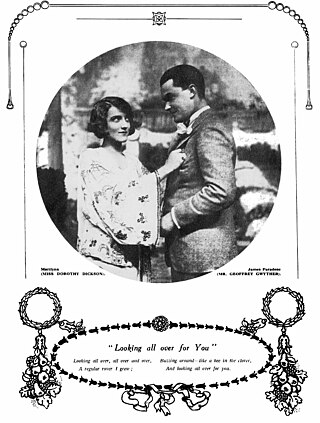
The Cabaret Girl is a musical comedy in three acts with music by Jerome Kern and book and lyrics by George Grossmith, Jr. and P. G. Wodehouse. It was produced by Grossmith and J. A. E. Malone at the Winter Garden Theatre in London's West End in September 1922 and featured Dorothy Dickson, Grossmith, Geoffrey Gwyther, and Norman Griffin in the leading roles.

Oh, Lady! Lady!! is a musical with music by Jerome Kern, a book by Guy Bolton and P. G. Wodehouse and lyrics by Wodehouse. It was written for the Princess Theatre on Broadway, where it played in 1918 and ran for 219 performances. The story concerns an engaged young man, Bill, whose ex-fiancée arrives unexpectedly on his wedding day. Bill works to convince his old flame that he was not worthy to marry her, but his clumsy efforts do not make him look good to his new fiancée, whose mother already dislikes Bill. A couple of crooks cause further complications.

Leave It to Jane is a musical in two acts, with music by Jerome Kern and book and lyrics by Guy Bolton and P. G. Wodehouse, based on the 1904 play The College Widow, by George Ade. The story concerns the football rivalry between Atwater College and Bingham College, and satirizes college life in a Midwestern U.S. town. A star halfback, Billy, forsakes his father's alma mater, Bingham, to play at Atwater, to be near the seductive Jane, the daughter of Atwater's president.
Miss 1917 is a musical revue with a book by Guy Bolton and P. G. Wodehouse, music by Victor Herbert, Jerome Kern and others, and lyrics by Harry B. Smith, Otto Harbach, Henry Blossom and others. Made up of a string of vignettes, the show features songs from such musicals as The Wizard of Oz, Three Twins, Babes in Toyland, Ziegfeld Follies and The Belle of New York.

The Night Boat (1920) is a musical in three acts, based on a farce by Alexandre Bisson, with a book and lyrics by Anne Caldwell and music by Jerome Kern. The story lampoons the notorious New York City-to-Albany night boat, on which clandestine romances were common.

Criss Cross is a musical comedy in two acts and prologue, with book and lyrics by Otto Harbach and Anne Caldwell and music by Jerome Kern. Set in France and Algiers, the plot concerns a successful aviator, Christopher Cross who manages to help Captain Carleton save Dolly Day from the designing schemes of IIphrahim Benani to rob her of her birthright and a considerable fortune.
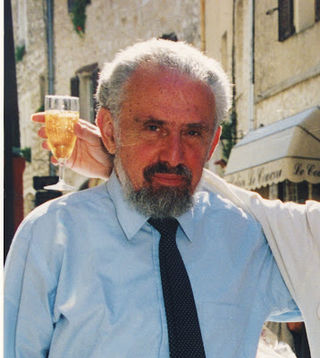
Gerald Martin Bordman was an American theatre historian, best known for authoring the reference volume The American Musical Theatre, first published in 1978. In reviewing an updated version of American Musical Theatre in 2011, Playbill wrote that the book had "altered the scope of American musical theatre history" and "remained the only book of its kind, and an invaluable one."

Stepping Stones is a "fantastical musical play" in two acts with book by Anne Caldwell and R. H. Burnside, lyrics by Anne Caldwell, and music by Jerome Kern. The show was produced by Charles Dillingham at the Globe Theater, and opened November 6, 1923.

The City Chap is a musical comedy with music by Jerome Kern, lyrics by Anne Caldwell and book by James Montgomery adapted from the play The Fortune Hunter by Winchell Smith.
The Billionaire is a musical in three acts with music by Gustave Kerker, and both book and lyrics by Harry B. Smith. The show was written with the backing of producers Klaw and Erlanger and was made specifically for the talents of Jerome Sykes who portrayed "The Billionaire", John Doe. The action of the musical begins in Nice, France during Carnival where the billionaire Sykes meets a young American girl, Pansy Good, studying to be an actress. Impressed with her talents, he buys her Doe's Theatre in New York City and establishes her as a star. Later, Doe attempts to ride a horse in a race at the Longchamp Racecourse in Paris, but is too fat to succeed. Pansy rides the horse instead and wins the race.

















